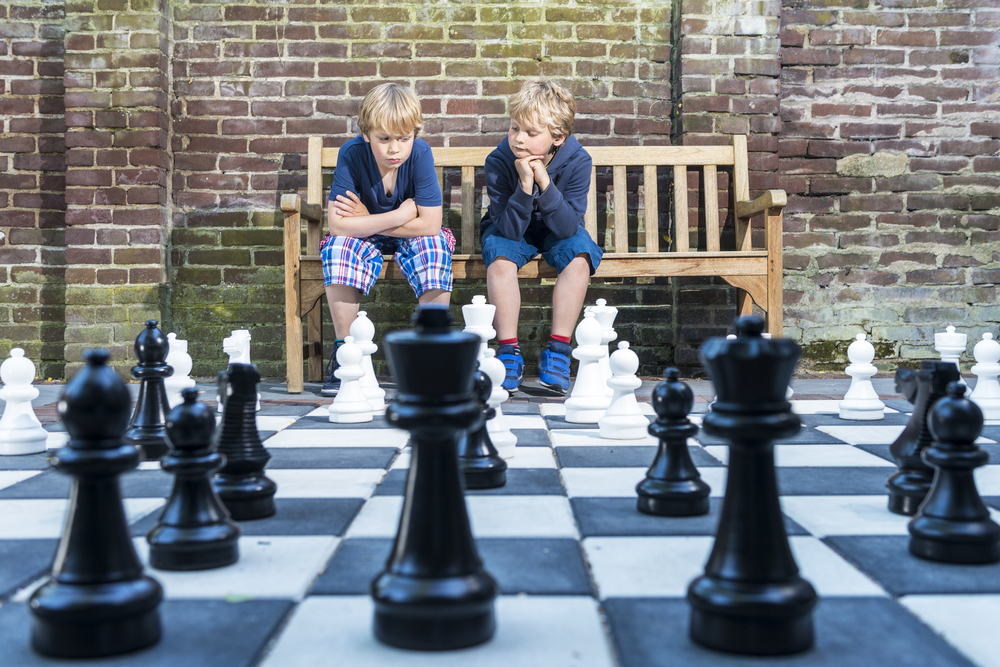San Diego — It’s that time of year marked by three little words that parents long to hear all summer: “back to school.”
As millions of children in the United States return to their classrooms, it’s worth noting that the important lessons aren’t taught there. They’re called “life lessons.” Likewise, for all the recent discussions about “skills” — i.e., a preference by some policy makers that the United States admit high-skilled immigrants — the most valuable skills aren’t measured by a standardized test. They’re called “life skills.”
These may be defined as the abilities that help everyday people deal effectively with the demands, challenges, and unpredictability of life. If you have teenagers, or even pre-teens, you’ll have no trouble coming up with a list of the sort of life skills you would want them to pick up over time.
Hands-off parenting equals bad parenting. Children don’t just grow organically into responsible adults. The whole process takes a lot of weeding, watering, and watching over. When I’m at the end of my days, I’ll be happy and satisfied if my three kids have, somewhere along the line, acquired these 20 essential life skills:
-
Self-awareness, introspection; the first step is knowing where you’re going is knowing who you are, and it might take a lifetime to really know the answer.
-
Earning and managing money, limiting debt, building savings; one has to earn enough to provide, but not so much that one can’t walk away when need be.
-
Critical thinking, knowing what one believes and why; everyone has an opinion, not everyone understands or can explain why they have it.
-
Effective and active listening; the most important form of communication is saying nothing at all, but instead paying close attention to what others are saying.
-
Time management, prioritizing and multitasking; there doesn’t seem to be enough hours in the day, which is all the more reason to manage them correctly.
-
Showing empathy, developing emotional intelligence; it’s easy to feel sorry for someone but it’s much harder to put yourself in their shoes.
-
Caring for oneself, cooking, doing laundry, etc.; part of growing up and entering adulthood is knowing how to take care of oneself and tend to one’s needs.
-
Mechanical ability, a knack for fixing things; few things are more satisfying than being able to use one’s hands to repair something that is broken.
-
Effective communication skills, writing and speaking; one has to be able to express oneself clearly, passionately, and for maximum effect.
-
Openness to opposing points of view/different perspectives; one is not always going to be right about everything, so one has to be prepared to be wrong.
-
Networking, connecting with others, finding mentors; wherever one wants to go, or whatever one wants to achieve, getting there will be easier with the help of others.
-
Self-control, the ability to concentrate and focus; it doesn’t do any good to have a thousand thoughts if one can’t find the pearls through the sand.
-
Good manners, politeness, thoughtfulness, and humility; nothing pays bigger dividends than treating people well, and taking their feelings into account.
-
Social skills, ability to relate well to others; better to conduct ourselves in such a way that people want to be around us rather than avoid us.
-
Willingness to take on challenges, confront fears/doubts; the surest way to grow is to summon the courage to do the things that frighten us.
-
Coping with failure, perseverance when things go awry; success is easy to deal with, but it’s how we deal with setbacks that will define our character and shape our lives.
-
Accountability, owning one’s decisions; most people have trouble taking responsibility, accepting fault, and admitting mistakes. So those who can do it will go far.
-
Decisiveness, resoluteness, willingness to take risks; after all options have been considered, one has to make choices and land somewhere.
-
Problem-solving, resourcefulness, adaptability; one has to know how to make the best of a bad situation and dig themselves out of a ditch.
-
Maintaining friendships and healthy relationships; in the end, all that will matter is the impact and effect we had on our fellow human beings.
Let’s face it. Our students are not going to pick up these traits at school. They’re not going to learn them from teachers, or glean them from classmates. They’re not going to get them from coaches, priests, or even mentors.
They have to be taught these things in the home, at the dinner table, by their parents. Sorry, folks. There is no passing the buck on this one. Other people can’t teach our children how to navigate this mystery called life.
And, as is usually the case, the best way to teach our children these invaluable life skills is to lead by example.
Ruben Navarrette is a contributing editor to Angelus, a syndicated columnist with The Washington Post Writers Group, and a columnist for the Daily Beast. He is a radio host, a frequent guest analyst on cable news, a member of the USA Today Board of Contributors, and host of the podcast “Navarrette Nation.” Among his books are “A Darker Shade of Crimson: Odyssey of a Harvard Chicano.”
Start your day with Always Forward, our award-winning e-newsletter. Get this smart, handpicked selection of the day’s top news, analysis, and opinion, delivered to your inbox. Sign up absolutely free today!

